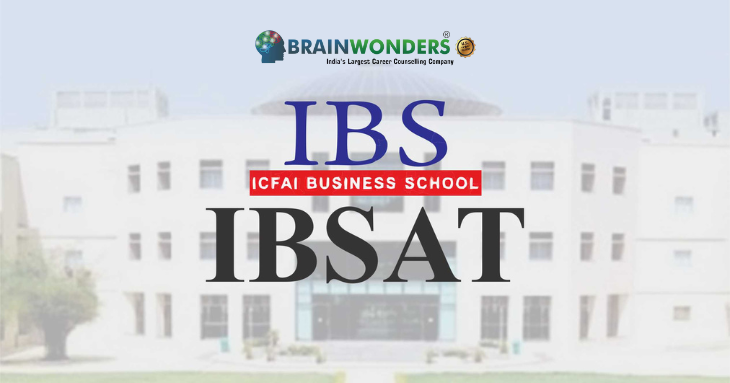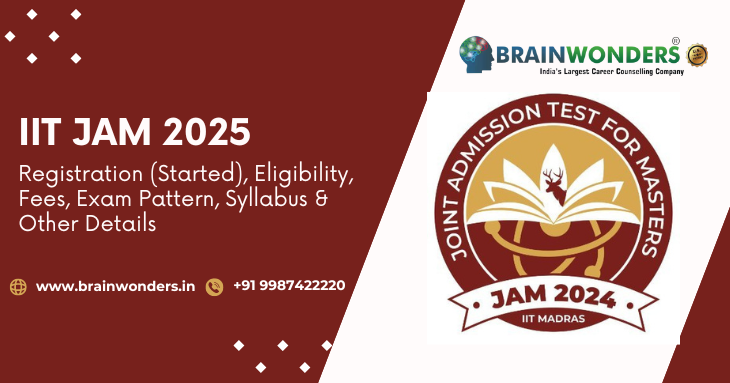

Are you aware which subjects and courses will bring you closer to your dream career?
Worry not, because the Brainwonders test and guidance will not only help you know it, but also follow it!
Blog
15 July,2024 | By Brainwonders

A Bachelor of Engineering (BE) is a four-year undergraduate program divided into eight semesters. This degree aims to equip students with fundamental engineering concepts and theories. Students who have completed their 10+2 education in the science stream and wish to develop technical skills can pursue a BE degree.
The All India Council for Technical Education (AICTE) grants the BE degree the same recognition as a Bachelor of Technology (BTech) without differentiating between the two. Over 4,000 colleges across all states and union territories in India offer BE/BTech courses. Most of these colleges are co-educational, with only a few being gender-specific. The average course fee for a BE degree is approximately Rs 6.0 lakhs.
Engineering professions are among the highest-paid globally, and obtaining a BE degree can lead to a high income, depending on one's skill set. The specific job roles of BE graduates rely primarily on the engineering branch they choose to study. Some popular branches of BE courses include Civil Engineering, Mechanical Engineering, Electrical Engineering, Computer Science Engineering, Robotics, and Chemical Engineering.
The full form of a BE degree is a Bachelor of Engineering, which is an undergraduate program lasting four years. This degree fosters both theoretical and practical knowledge of engineering principles. Graduates can pursue various careers based on their specialization, such as Network Administrators, Design Engineers, Computer Architects, and Quality Control Engineers.
Get the Best Counselling Support in India With a Click
| Particular | Value |
| Course Name | B.E. |
| Full Form | Bachelors of Engineering |
| Level | Undergraduate |
| Eligibility Criteria | 10+2 class with PCM as mandatory subjects |
| Duration | Four years |
| Admission Process | Entrance examination |
| Entrance Exam | |
| List of Popular Specialisations | |
| Average Course Fee | Rs 6.0 lakhs |
| Career Options after B.E. |
|
| Average Salary | Rs 8.5 LPA |
| Job Profiles | Quality Control Engineer, Process Development Engineer, Civil Engineer, Electrical Engineer and Design Engineer |
| Top Recruiters | HCL Technologies Ltd, Infosys Limited, Google, Tata Consultancy Services Limited, and Accenture |
The fee structure for a BE (Bachelor of Engineering) degree varies based on the type of college and the facilities offered. BE course fees range from Rs. 6,000 to Rs. 21.0 lakhs. Gaining admission to government colleges through the appropriate entrance exam allows students to complete their BE course on a budget.
Private colleges offer BE courses with additional facilities for those without financial constraints. Ultimately, the choice of college depends on the candidate's financial situation. However, in India, the average fee for a Bachelor of Engineering is approximately Rs. 6.0 lakhs.
The Bachelor of Engineering (BE) course aims to establish a strong foundation for students in their chosen specialisation. Below are some key details about the BE course that candidates may find helpful:
Career Confusion? DMIT has the answers!
Candidates interested in mastering technical skills and enhancing their programming abilities may opt for the B.E. program. Engineers are currently in high demand in the job market. Here are some key points about this field:
Candidates aspiring to join the B.E. program must review the eligibility criteria to ensure they qualify for admission to top colleges. They need to meet specific requirements to pursue the B.E. course. Below are the Bachelor of Engineering eligibility criteria for candidates:
The Bachelor of Engineering (B.E.) is a four-year course, similar to the B.Tech degree. However, for lateral entry students, the B.E. duration is three years since they are given direct entry into the program's second year. The course duration for the B.E. remains consistent across all colleges, and college authorities are not permitted to alter this duration.
Candidates aspiring to pursue a Bachelor of Engineering should possess a specific skill set to help them succeed professionally. The essential skills required for the Bachelor of Engineering course include:
The admission process for B.E courses generally revolves around nationwide entrance examinations. This process varies between colleges and can be categorized into two types: entrance-based and merit-based. There are also distinctions in entry routes: direct and lateral, each with its own unique procedures. Below are the steps typically involved in BE admissions:
Top Entrance Exam for BE Engineering
Candidates aspiring to become engineers must participate in entrance examinations organized by different universities. These examinations are conducted at state, university, and national levels to facilitate admissions into BE courses. Below are some examples of BE entrance examinations:
| Exam Name | Exam Level | Conducting Body | Exam Schedule |
| JEE Main | National | NTA | JEE Main Exam Date |
| KCET | State | Karnataka Examinations Authority | KCET Exam Date |
| AP EAMCET | State | JNTU Kakinada | AP EAMCET Exam Date |
| COMEDK-UGET | State | Consortium of Medical Engineering and Dental Colleges of Karnataka | COMEDK UGET Exam Date |
| WBJEE | State | West Bengal Joint Entrance Examinations Board | WBJEE Exam Date |
| BITSAT | University | BITS | BITSAT Exam Date |
| SRMJEEE | University | SRM University | SRMJEEE Exam Date |
| TANCET | University | Anna University | TANCET Exam Date |
| MHT CET | State | State Common Entrance Test Cell - Maharashtra State | MHT CET Exam Date |
| JEE Advanced | National | IIT Bombay | JEE Advanced Exam Date |
The Bachelor of Engineering cut-off marks represent the criteria for assessing a student's merit or exam performance. These cut-offs are influenced by the qualifying examinations and the number of candidates appearing for the entrance exams, which can vary between institutions.
Additionally, the BE cut-off marks are influenced by reservation categories. Below, we've provided the table's BE cut-off marks for some notable colleges.
The Bachelor of Engineering curriculum spans four years, organized into eight semesters. Each semester covers distinct subjects tailored to specific branches, except for the first-year syllabus which is common across branches. Below is the B.E syllabus for Jadavpur University, Kolkata, outlined in the table.
| Semester 1 | Semester 2 |
|
|
| Semester 3 | Semester 4 |
|
|
| Semester 5 | Semester 6 |
|
|
| Semester 7 | Semester 8 |
|
|
B.E. courses provide candidates with a range of specializations. Candidates can specialize and become experts in their chosen engineering field by selecting a particular subject. Below is a table displaying some specializations available for a bachelor's degree in engineering.
Upon completing their B.E., candidates have the option to pursue higher studies such as M.Tech to enhance their technical skills. Pursuing an MBA is also a viable choice for those interested in management roles. A Master's degree from a reputable university can open doors to lucrative career opportunities.
Engineering blends experience, creativity, and analytical techniques to develop products that influence consumer preferences. Graduates can leverage their technical expertise to advance their careers, securing positions in top multinational corporations.
Opportunities exist in the public sector, including roles in civil services, education, defence, and various government departments and PSUs. Starting one's own business is another promising path for those inclined towards innovation and entrepreneurship.
Graduates in this field possess ample opportunities across various sectors, with recruiters valuing their technical prowess and theoretical knowledge. Engineering graduates can explore diverse fields and assume multiple roles that offer competitive salaries. Some common career paths for engineering graduates include:
These career paths highlight the versatility and demand for engineering graduates across industries, offering them opportunities to contribute to impactful projects and innovations.
Q.1 What is BE?
Ans: The full form of BE is Bachelor of Engineering is an undergraduate degree for aspiring engineers. This degree is equivalent to a B.Tech degree and is offered at various central and state universities like IITs and NITs.
Q.2. Do I have to be in the science field to apply for BE?
Ans: Yes, in order to pursue a Bachelor of Engineering (BE) degree, students must have completed secondary education with an emphasis in the science subjects like Physics, Chemistry, and mathematics.
Q.3. What are some of the best BE colleges in India?
Ans: The Indian Institute of Technology (IIT) in Delhi, Mumbai and Roorkee are amongst some of the renowned institutes that provide BE courses.
Q.4. What job profiles can I expect after completing the BE course?
Ans: There are various job profiles that one can get into after completing the BE course.
Q.5. Is Distance BE valid?
Ans: No, Distance BE courses are not valid because they have not been approved by the University Grants Commission (UGC) and All India Council for Technical Education (AICTE) as valid qualification.
Worry not, because the Brainwonders test and guidance will not only help you know it, but also follow it!



,_Syllabus,_Pattern,_Old_Question_Papers.png)

